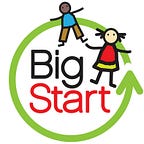A profession thinking and speaking for itself!
ACP, SIPTU and PLÉ form working group to establish a professional body for early childhood education and care in Ireland
Efforts to professionalise early childhood education and care in Ireland have been underway for many years, at least since the publication of Ready to Learn. White Paper on Early Childhood Education by the Department of Education and Science in 1999. An array of policies and initiatives have since addressed the need for a coordinated approach to developing a collective professional identity of all those working in the field of early childhood education and care, regardless of their formal qualification or the role they occupy in the early childhood system.
More recently, First 5. A whole-of-government strategy for babies, young children and their families has laid out an ambitious plan to establish an effective early childhood system, resting on five interconnected building blocks:
1. Leadership, governance, collaboration
2. Regulation, inspection, quality assurance
3. Skilled and sustainable workforce
4. Research, data, monitoring and evaluation
5. Strategic investment
We welcome the commitment expressed in First 5 and share the vision of an effective, Competent System of early childhood education and care. We further suggest it should be based on the following principles:
• The rights of All children to high quality education and care from birth
• The right of All families to the best possible care and education for their youngest
children in accessible settings staffed by competent, empathetic and committed educators
• The shared responsibility of professionals, policy makers, and academics to ensure these rights are realised
• The rights of All early childhood educators to professional recognition and professional working conditions
• The right of the public to an early childhood system that is valued as a common good and understood as a public responsibility.
We strongly believe that a professional early childhood education and care workforce is key to realising the vision of First 5 and critical for giving effect to the above principles.
Many organisations, groups and individuals have contributed to raising the profile of the early childhood profession in Ireland. While we appreciate and value diverse voices, it has become clear that the multitude of positions and (sometimes conflicting) interests that characterise the Irish early childhood education and care environment have hindered the development of a shared collective professional identity.
We also appreciate that the government has consistently expressed the need for professionalisation, and has launched a number of important initiatives in this regard, including the establishment of support services, training and funding initiatives, and systems of regulation and inspection.
However, we firmly believe that the development of a collective professional identity can neither be imposed nor achieved by influences that exist mainly outside that profession. Instead of ‘professionalising’ the workforce, it is government’s responsibility to create the conditions for the profession to emerge and self-organise. We find our position supported by international evidence (e.g. governance and systems research, and a sound body of research into professional systems) and by examples of how other autonomous professions operate, in Ireland.
Central to the development of a collective professional identity of the early childhood education and care profession is the existence of a self-organised body that serves as a focal point for the profession.
Our working group will explore the structure, functions and remit of such of a body, which we believe should extend to the following critical functions:
• To implement and safeguard a professional code of ethics
• To develop and protect standards for professional practice
• To help achieve and implement professional pay and working conditions
• To provide a focal point for professional practice, professional development, policy making, and research
• To constructively liaise and collaborate with other groups, organisations and institutions to ensure the establishment of an effective, Competent System of early childhood education and care: i.e. regulators, inspectors, funding agencies and representatives of service providers and business
• To promote and inform meaningful public discourse to underpin the professional identity of ECEC and raise awareness of the importance and value of the contribution made by childhood professionals to the lives of children and families and to society as a whole.
Each of our organisations represents a significant part of the early childhood education and care workforce. Notwithstanding our individual organisational remits we are convinced that the time has come to form a coalition to establish the professional body for early childhood education and care that we see as crucial for the success of the ambitions expressed in First 5.
Following an initiative of a group of independent early childhood advocates, and supported by the Early Childhood Research Centre at Dublin City University, we have therefore set up a working group that will explore the organisational format, remit, and constitution of such a professional body in consultation with the wider early childhood community, with the aim of establishing it as soon as possible.
ACP | PLÉ | SIPTU — Dublin, August 2019
1 Title inspired by: Urban, M., & Dalli, C. (2012). A profession speaking — and thinking — for itself. In L. Miller, C. Dalli, & M. Urban (Eds.), Early childhood grows up: towards a critical ecology of the profession. Dordrecht and London: Springer.
